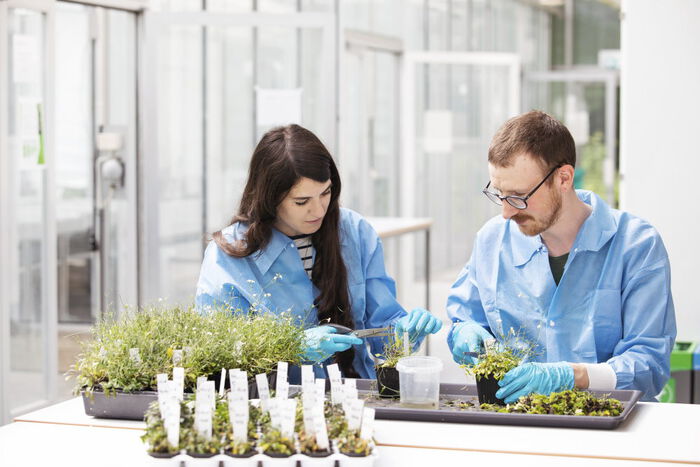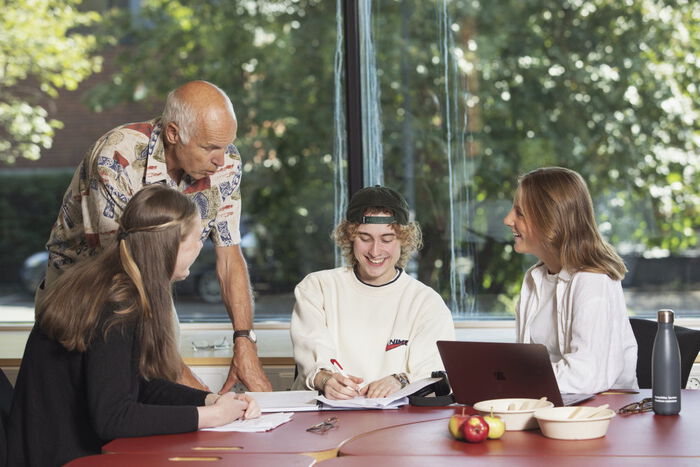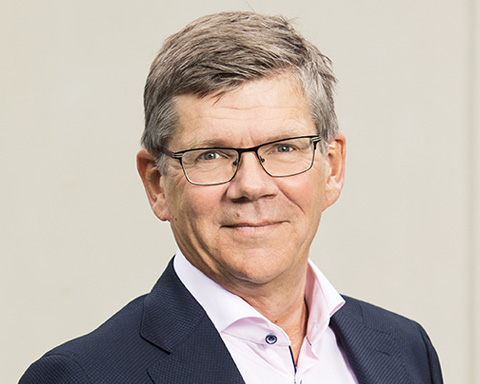What causes the world's major epidemics? Why does biodiversity decrease ever faster? How can we feed the world's ever-growing population? Questions like this explain why we are concerned with life science.
(article continues below)

Our prime minister, Erna Solberg, visited us as you could see on friday during a sod-turning ceremony that marked the beginning of the construction of our new Life Science building.
Convergence is at hearth - and the new Life Science building is an enabler. Researchers will meet across disciplines - meet across sectors. The building will facilitate the business community's and decisions makers access to infrastructure, candidates and the university's wise brains. That our wise brains are challenged by wise brains outside the university.
Together we will attack the outer limits of our understanding. For scientific progress, for innovation and for entrepreneurship. For all forms of value creation; the one that feeds the curiosity of humanity, the one that ensures the sustainable development of the world and the one that creates new businesses. And more important than anything - we must ensure that the candidates we educate in this melting pot are knowledgeable, innovative and creative.
The Oslo Life Science conference was created as a part of this vision; as a platform for involving the whole life science society in the vision and in the development. The University of Oslo cannot reach our goals on our own. We need to reach out and be an important player in the creation of the melting pot. And the pot is heating. Until 5-10 years ago, Norway rarely featured as a player in the European, or even Nordic startup ecosystem. Today, Oslo is an innovation hotspot.
In order to succeed - in order to reach our vision - we need to understand that life sciences is an ecosystem under constant evolution. We need to see the striking similarities between bones in the forelegs of various mammals so to say. Impatient bold research, excellence in education, personalized talent development all framed by a strong commitment to and understanding of ethical principles; building and maintaining the integrity and sustainability of the university and of the society.
This is what this week is all about; AND talents, ethical challenges, Darwins finches, personaliced medicine and much more are covered in our conference - in collaboration with many - and for the UofOslo important partners - thank you all so much for contributing to our common agenda.
Today, one part of the value creation is in focus. We will highlight inspiring examples on collaboration between academia and industry that have benefitted patients and society. How can we learn from these examples while building the health industry in Oslo and Norway?
We do have distinguised international speakers, we will get pitches from entrepreneurs and I am looking very much forward to the presentation and debate on the new white paper on health industry.
I do share the Government's belief that the health industry can become an important leg for Norway to stand on among everything we should "live by after the oil". Framework conditions, incentives and instruments must be specific to trigger private capital, efforts and growth. Our advice in the process have been clear:
Basic science is key for the identification and development of personalized treatment and for the development of new targets for prophylaxis and treatment of disease.
Our researchers and hospitals need to participate in more clinical trials – enabling the patients to be given access to new, experimental treatment. This will contribute to innovation, jobs, wealth creation.
We need to develop, manage and share costly and advanced infrastructure and international research networks. This will benefit small startups.
We need to realize the potential of our health records – they are truly uniqe and there is a tremendous potential for both evidence-based/knowledge-based medicine and industry.
And at last we need good and flexible framework conditions like government health innovation funds in one funding program. Good ideas from the research institutions must be given the best chance of success, so that we get useful products and profitable jobs. Several of the ideas from the universities have enormous potential and require experience and knowledge to develop properly. The structures that build health care from knowledge institutions today should be strengthened, and the network of persons with experience from the health industry be put in system by a state actor.
----
This text is excerpts from the speech given at the main event on health industry during Oslo Life Science 2019, february 11th in the university aula.





Dette er sv?rt interessant, og jeg beklager at jeg gikk glipp av dette.
Det har blitt mye utenlandsopphold og reiser samt flyttinger som har gjort sitt til at kontinuiteten til Universitetet
har blitt noe amputert. Men jeg gratulerer ledelsen?ved Universitetet som tar opp grunnleggende livsfilosofiske
verdier og holdninger til livet som har en dybde som studentene trenger i sine ulike fag . Mine lykkeligste dager har desidert v?rt i den ungdomstiden som ble tilbrakt p? Universiteter i inn og i utland. Og i disse tekniske tider hvor alt g?r fort og galt noen ganger s? har det ?alt ? si at man star fast og sikker i sin faglige kompetanse, og i sin verdiholdning som har en sikker plattform i faget.
Med hilsen Gro Vera Neste Christiansen
?
?
Kommentering p? dette dokumentet er skrudd av.